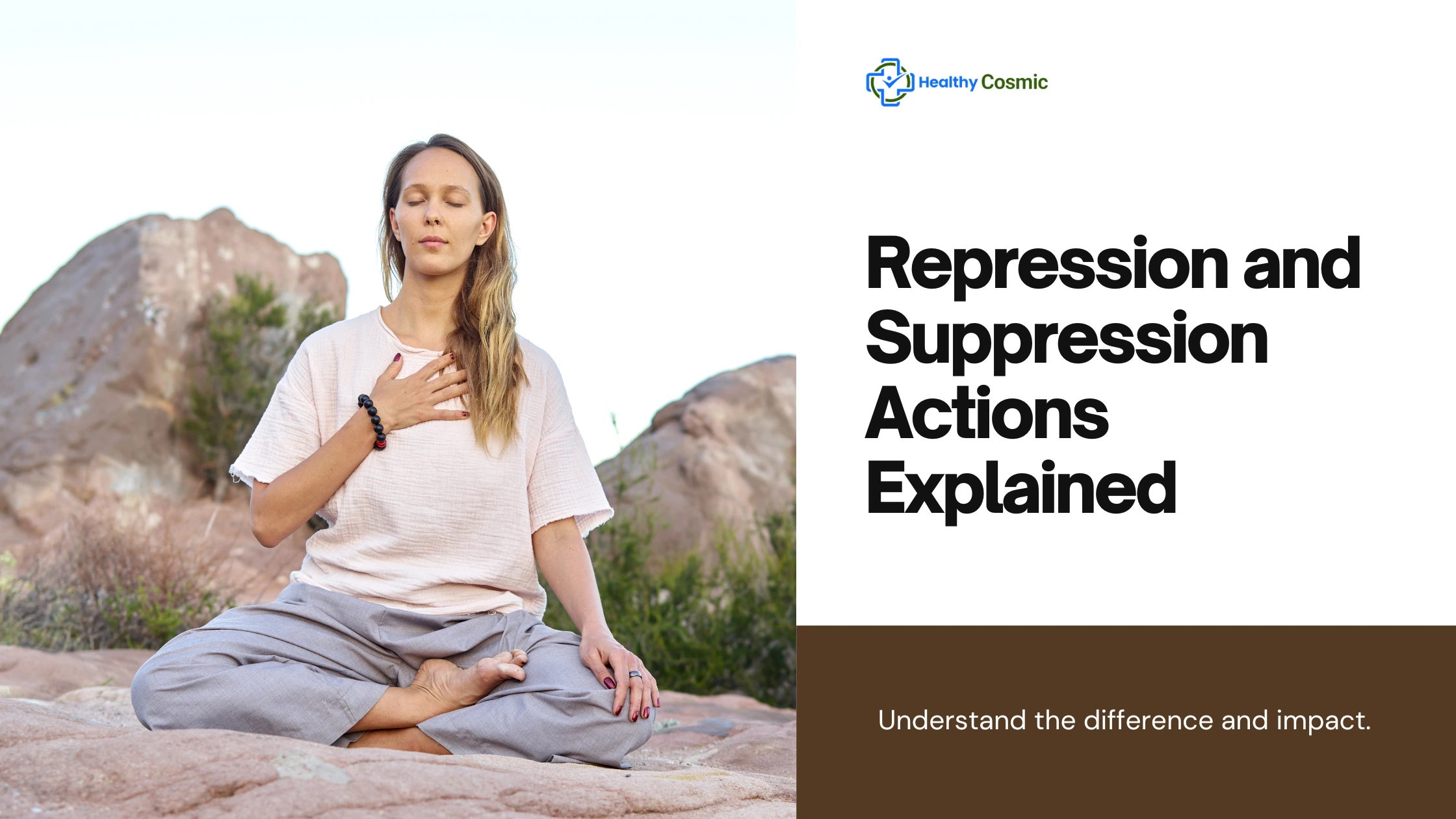The words repression and suppression mean different things. “Repression” is when you unknowingly ignore something bad and hide it in your mind. “Suppression” is a choice to notice something bad but not let it affect your thoughts on purpose. The key difference is that repression happens without you knowing, while suppression is a decision you make. These distinctions are important in psychology and communication. They affect how people deal with feelings, remember things, and use these ideas in different areas.
Etymology of Repression and Suppression
The roots of Repression and Suppression tell us more about their meanings. “Repression” traces back to the Latin word “repressus,” meaning “back” and “hold, press,” used since the 14th century. It’s about unconsciously holding back sensations or feelings.
On the flip side, “suppression” comes from the verb “suppress,” meaning to stop. It’s a choice we consciously make to reduce the intensity of negative thoughts and emotions. Even though people often use these words interchangeably, knowing their word origins is crucial to understand how they’re used in psychology, communication, and social dynamics.
Linguistic Analysis
People often mix up repression and suppression,” but they have small differences. Repression is when you unknowingly ignore something bad and hide it in your mind. Suppression is when you decide to notice something bad but don’t let it affect your thoughts. Imagine someone forgetting a tough memory without realizing it – that’s repression. On the other hand, consciously avoiding negative thoughts to stay calm is suppression.
Psychological Perspectives
Repression and suppression are psychological ideas with clear differences. Repression is when you unknowingly hide bad memories or feelings deep inside your mind. Suppression is when you choose to put aside certain thoughts or emotions on purpose.
In psychology, repression helps protect us from distress, but it can leave problems unsolved. Suppression, however, is seen as a smart and conscious way to handle emotions, letting us manage them well.
Defense Mechanisms
Repression and suppression are ways our minds defend us from tough experiences. Repression is when we unconsciously hide painful thoughts and memories, often from past hurts. Someone might forget childhood abuse because of repression, trying to shield themselves. But the memories stay, causing issues. On the other hand, suppression is a choice to push away unwanted thoughts or feelings consciously. For instance, someone might decide not to dwell on bad thoughts to avoid feeling overwhelmed. While suppression can help deal with things right away without causing trouble, it might not be good in the long run.
Social and Political Context
Digital repression, different from regular governance, aims to stop, lessen, or control challenges that are not part of official institutions. This type of repression tries to block, weaken, and disturb social movements, protests, and activism without directly using force.
For example, the Turkish government globally targeted people it thought were involved in the July 2016 coup attempt, affecting activists and people living outside Turkey. Gentler forms of repression, like making people feel bad and taking away resources, are more common now. These methods, which include stopping information and censoring, try to hinder and weaken social movements without necessarily using direct force.
Repressive vs Suppressive
| Aspect | Repression | Suppression |
| Definition | Unconscious blocking of unpleasant emotions, impulses, memories, and thoughts from conscious awareness | Conscious process of intentionally avoiding distressing feelings by diverting attention or holding emotions in check |
| Consciousness | Unconscious | Conscious |
| Process | Involuntary | Voluntary |
| Emotional Handling | Automatic suppression of emotions | Intentional avoidance or control of emotions |
| Coping Mechanism | Unaware and automatic defense mechanism | Deliberate and conscious emotional regulation |
| Mindful Component | May involve unawareness or lack of mindfulness | May involve intentional mindfulness or awareness |
| Examples | Unconsciously forgetting a traumatic event | Choosing not to dwell on a negative experience consciously |
| Related Terms | Unconscious blocking, involuntary forgetting | Conscious avoidance, intentional emotional control |
Overlapping Meanings
Repression and suppression can be confusing because people sometimes use them interchangeably. But they have different meanings. Repression is when you don’t even realize you’re hiding bad memories or feelings deep inside. Suppression is when you decide to put aside certain thoughts or feelings on purpose. So, even though these words sound similar, they mean different things, especially in psychology.
Coping Mechanisms
People use repression and suppression to handle stress and emotions. Repression is automatic, hiding bad memories or feelings in your mind without knowing. Suppression is a choice, consciously putting aside certain thoughts or feelings. Both can help briefly, but repression may cause lingering problems, and suppression might have lasting drawbacks. For instance, someone might hide tough memories without realizing it or choose to push away negative thoughts to prevent feeling too much.
Impact on Memory and Behavior
Repression and suppression affect how we remember things and act, but they work differently. Repression is like a hidden force that stops certain memories and thoughts from coming into our minds without us realizing it. On the other hand, suppression is when we consciously try to avoid specific thoughts, feelings, or actions, or keep them away from our thoughts. These mechanisms can have important effects on our mental well-being over time. If repression isn’t resolved, hidden memories may come back, affecting our mental health.
Therapeutic Approaches
Experts help with repression and suppression using different methods. They use things like free association and projective techniques to uncover hidden feelings. Psychoanalytic and psychodynamic therapy explore and find repressed memories. Another method is Cognitive-Behavioral Therapy (CBT), which helps people recognize and change negative thoughts linked to suppressed emotions.




